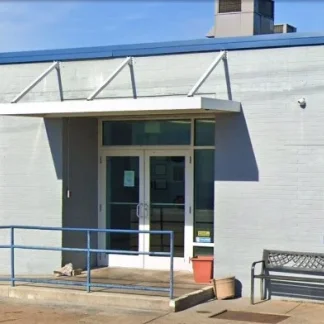Olsten Health Services
Olsten Health Services is a private rehab located in Charleston, West Virginia. ...
Recovery Point Charleston is a drug and alcohol addiction recovery center in Charleston, West Virginia. It's part of the Recovery Point Network, with the Charleston location exclusively serving women in crisis through residential treatment. It's a residential setting with modern amenities.
Recovery Point is a no cost program, with services sustained by donations, fundraisers, and grants. Clients participate in facility operations and build a community to support one another and achieve stability.
Detox is the first stage of treatment for those with severe symptoms. Medical professionals oversee the process, which typically lasts five to seven days, to provide support and comfort during what can be a complicated process. Recovery Point does not use medication during detox unless deemed medically necessary.
Clients in detox will be referred to local hospitals if additional medical care is required. Upon completion of detox, they graduate to the residential program.
Having a stable living situation and support system is vital to recovery. Recovery Point provides both in a private setting. Residents reside on campus 24 hours a day for the length of their treatment, where they receive constant monitoring and have 24 access to their clinical and medical care teams.
Recovery Point’s treatment is built on the 12 steps program. Clients attend daily meetings where they learn about the nature of addiction, learn coping skills, and provide support for one another. Treatment includes 40 written assignments and 20 meetings onsite, and are also required to attend support groups in the local area and perform chores around the facility.
As clients progress through treatment, they earn day passes and acquire more responsibilities, like holding a job. They can also become peer mentors, where they offer guidance to those in the early stages of recovery.
Upon program completion, clients meet with their care team to develop a plan of action for returning to their communities and sober living. Aftercare includes things like goal setting and connecting with community support resources.
Contact us for more information: (304) 523-4673

Connect with Recovery Point by calling their admissions team directly.
(304) 523-4673 Website Get DirectionsGroup therapy is any therapeutic work that happens in a group (not one-on-one). There are a number of different group therapy modalities, including support groups, experiential therapy, psycho-education, and more. Group therapy involves treatment as well as processing interaction between group members.
In individual therapy, a patient meets one-on-one with a trained psychologist or counselor. Therapy is a pivotal part of effective substance abuse treatment, as it often covers root causes of addiction, including challenges faced by the patient in their social, family, and work/school life.
Life skills trainings involve all the skills a person must have in order to function successfully in the world. These include time management, career guidance, money management, and effective communication. Truly successful addiction recovery is based on the ability to not only live substance-free, but to thrive. Life skills teaches the practical necessities of functioning in society, which sets clients up for success in life, and therefore sobriety.
In individual therapy, a patient meets one-on-one with a trained psychologist or counselor. Therapy is a pivotal part of effective substance abuse treatment, as it often covers root causes of addiction, including challenges faced by the patient in their social, family, and work/school life.
Life skills trainings involve all the skills a person must have in order to function successfully in the world. These include time management, career guidance, money management, and effective communication. Truly successful addiction recovery is based on the ability to not only live substance-free, but to thrive. Life skills teaches the practical necessities of functioning in society, which sets clients up for success in life, and therefore sobriety.
Life skills trainings involve all the skills a person must have in order to function successfully in the world. These include time management, career guidance, money management, and effective communication. Truly successful addiction recovery is based on the ability to not only live substance-free, but to thrive. Life skills teaches the practical necessities of functioning in society, which sets clients up for success in life, and therefore sobriety.
Olsten Health Services is a private rehab located in Charleston, West Virginia. ...
Prestera Center - Charleston is a dual diagnosis mental health and substance use...
Clifford and McNeely Counseling is a private rehab located in Charleston, West V...
Charleston Area Medical Center - Behavioral Health is a private rehab located in...